Filter by
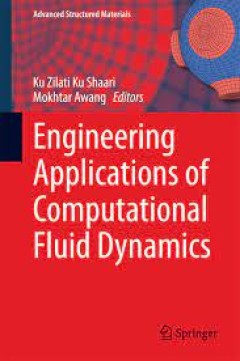
Engineering Applications of Computational Fluid Dynamics
This volume presents the results of Computational Fluid Dynamics (CFD) analysis that can be used for conceptual studies of product design, detail product development, process troubleshooting. It demonstrates the benefit of CFD modeling as a cost saving, timely, safe and easy to scale-up methodology.
- Edition
- -
- ISBN/ISSN
- 978-3-319-02836-1
- Collation
- 42 b/w illustrations, 66 illustrations in colour
- Series Title
- -
- Call Number
- -
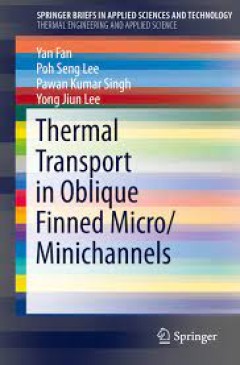
Thermal Transport in Oblique Finned Micro/Minichannel
The main aim of this book is to introduce and give an overview of a novel, easy, and highly effective heat transfer augmentation technique for single-phase micro/minichannel heat sink. The specific objectives of the volume are to: Introduce a novel planar oblique fin microchannel and cylindrical oblique fin minichannel heat sink design using passive heat transfer enhancement techniques Investi…
- Edition
- -
- ISBN/ISSN
- 978-3-319-09647-6
- Collation
- 15 b/w illustrations, 80 illustrations in colour
- Series Title
- -
- Call Number
- -
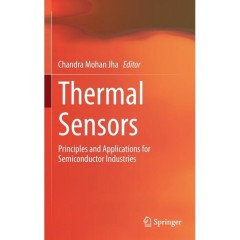
Thermal Sensors
This book is a comprehensive guide to both the fundamentals of thermal sensors and their advanced functions. Key topics include sensor materials, CMOS-compatible sensors, measurement capabilities, thermal management and manufacturing processes. The introductory chapter covers the basic principles of thermal sensors from the essentials of heat transfer to smart wireless sensors. Later chapters i…
- Edition
- -
- ISBN/ISSN
- 978-1-4939-2581-0
- Collation
- 89 b/w illustrations
- Series Title
- -
- Call Number
- -
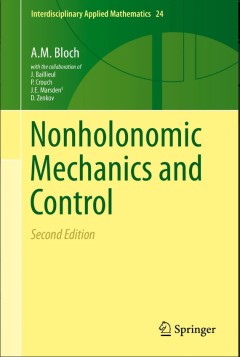
Nonholonomic Mechanics and Control
This book explores some of the connections between control theory and geometric mechanics; that is, control theory is linked with a geometric view of classical mechanics in both its Lagrangian and Hamiltonian formulations and in particular with the theory of mechanical systems subject to motion constraints. The synthesis of the topic is appropriate as there is a particularly rich connection bet…
- Edition
- 2
- ISBN/ISSN
- 0939-6047
- Collation
- XXI, 565
- Series Title
- Interdisciplinary Applied Mathematics
- Call Number
- -
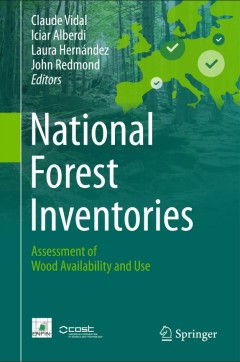
National Forest Inventories
The book presents the current state and good practices of national forest inventories in monitoring wood resources and demonstrates pathways for harmonisation and improved common reporting. Beyond a general overview over availability and use of wood resources in different countries, it provides a unique collection of original contributions from national forest inventory experts with in-depth de…
- Edition
- 1
- ISBN/ISSN
- 978-3-319-44014-9
- Collation
- XXXII, 845
- Series Title
- -
- Call Number
- -
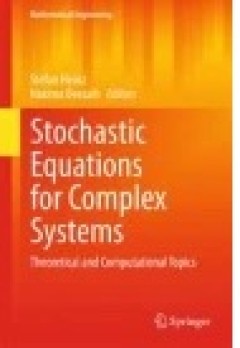
Stochastic Equations for Complex Systems
The purpose of these notes is to provide an introduction to the Malliavin calculus and its recent application to quantitative results in normal approximations, in combination with Stein’s method. The basic differential operators of the Malliavin calculus and their main properties are presented. We explain the connection of these operators with the Wiener chaos expansion and the Ornstein-Uh…
- Edition
- -
- ISBN/ISSN
- 978-3-319-18206-3
- Collation
- -
- Series Title
- -
- Call Number
- -
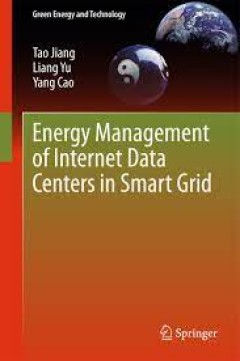
Energy Management of Internet Data Centers in Smart Grid
This book reports the latest findings on intelligent energy management of Internet data centers in smart-grid environments. The book gathers novel research ideas in Internet data center energy management, especially scenarios with cyber-related vulnerabilities, power outages and carbon emission constraints. The book will be of interest to university researchers, R&D engineers and graduate stude…
- Edition
- -
- ISBN/ISSN
- 978-3-662-45676-7
- Collation
- 23 b/w illustrations
- Series Title
- -
- Call Number
- -
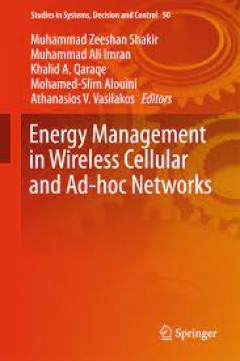
Energy Management in Wireless Cellular and Ad-hoc Networks
This book investigates energy management approaches for energy efficient or energy-centric system design and architecture and presents end-to-end energy management in the recent heterogeneous-type wireless network medium. It also considers energy management in wireless sensor and mesh networks by exploiting energy efficient transmission techniques and protocols. and explores energy management i…
- Edition
- -
- ISBN/ISSN
- 978-3-319-27568-0
- Collation
- 134 b/w illustrations, 50 illustrations in colour
- Series Title
- -
- Call Number
- -
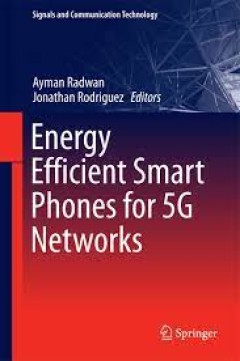
Energy Efficient Smart Phones for 5G Networks
This book addresses current technology trends and requirements leading towards the next era in mobile communication handsets; and beyond that the book proposes innovative solutions that could be candidate solutions for 5G phones. It adopts a multidisciplinary and interdisciplinary stance towards handset design, a necessary ingredient if 5th Generation handset and services are to really take-off…
- Edition
- -
- ISBN/ISSN
- 978-3-319-10314-3
- Collation
- 38 b/w illustrations, 132 illustrations in colour
- Series Title
- -
- Call Number
- -
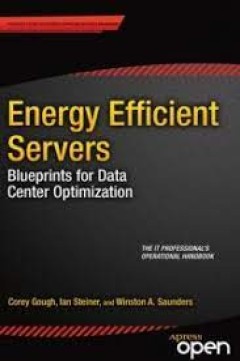
Energy Efficient Servers Blueprints for Data Center Optimization
Energy Efficient Servers: Blueprints for Data Center Optimization introduces engineers and IT professionals to the power management technologies and techniques used in energy efficient servers. The book includes a deep examination of different features used in processors, memory, interconnects, I/O devices, and other platform components. It outlines the power and performance impact of these fea…
- Edition
- -
- ISBN/ISSN
- 978-1-4302-6638-9
- Collation
- 103 b/w illustrations
- Series Title
- -
- Call Number
- -
 Computer Science, Information & General Works
Computer Science, Information & General Works  Philosophy & Psychology
Philosophy & Psychology  Religion
Religion  Social Sciences
Social Sciences  Language
Language  Pure Science
Pure Science  Applied Sciences
Applied Sciences  Art & Recreation
Art & Recreation  Literature
Literature  History & Geography
History & Geography